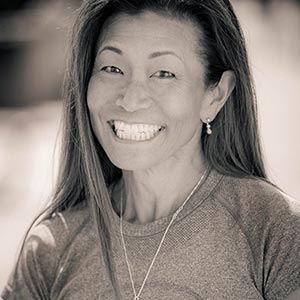Not all nutrition advice is created equal. If you want to be sure that the advice you are receiving is in accordance with scientific, evidence-based recommendations, then the Registered Dietician Nutritionist (RDN) is the gold standard.
As of January 2024, you are required to have a minimum of a masters degree in Nutrition, Dietetics, Public Health or similar field of study to even sit for the RDN exam. To maintain your RDN status, you have to complete 75 continuing professional education units every 5 years, which ensures that RDNs stay current with the evolving science. Compared with the less than 20 hours of nutrition education that the average medical student gets during their four years of schooling, the extent to which RDNs are trained in their specialty of medical nutrition therapy should be apparent.
Once you have practiced as an RDN for a minimum of two years and have completed 2,000 hours of qualified sports dietetics practical experience, you are eligible to sit for the Certified Specialist in Sports Dietetics (CSSD) exam, which requires recertification every 5 years.
Our nutrition expert for The Noble Path Foundation is Melissa Mathes, founder of Total Nutrition Counseling. In addition to being a credentialed RDN, Melissa also has the aforementioned CSSD certification. This puts her in an elite field of specialists uniquely qualified to speak on the topic of sports nutrition.
I recently had the opportunity to sit and chat with Melissa after she spoke to our teens during her AIM High presentation on How to Fuel for Optimal Performance. The following are a few nuggets from our conversation (edited for flow and brevity).
Cindi (CJ): I always tell people to look for the RDN after someone’s name before jumping on their nutrition bandwagon. But I’ve also seen just the RD without the N. Is there a difference?
Melissa (MM): No, it’s the exact same thing. The ‘N’ was added to the credential more recently to highlight the nutrition aspect of our work since some people were unsure what ‘dietetics’ meant. RDs/RDNs look at the whole picture: stage of life, gender, medical history, labwork, medications, anthropometrics, and a myriad of other factors. Someone can call themself a ‘nutritionist’ but if they lack the understanding and educational background, they might make recommendations without taking all those factors into consideration. This could potentially be dangerous due to the mitigating components that might have been overlooked, left out, or not even considered.
CJ: I love Michael Pollan’s quote when summing up nutrition advice, “Eat Real Food. Not too much. Mostly plants.” I think it encapsulates the common sense approach of using moderation in most things and also highlights that while eating well is not always that easy, it is relatively simple. Is there anything you would add or change to it?
MM: I’m not sure because at the most basic level, that quote is perfect. A saying I also like is ‘Foods first, supplements second.’ I don’t like pushing supplements, but there is definitely a place for them, especially for individuals with chronic disease, certain athletes, and other circumstances. Supplements are supposed to aid in combating nutrient deficiencies, and in some cases it can slightly aid in athletic performance, but with professional guidance from an RDN, a healthy lifestyle diet can often be all you need to achieve your goals for overall health. I always tell my patients, let’s see what the right nutrition can do for your body first, before you attempt supplements.
CJ: Over the course of your career, do you feel that diet trends have gotten worse, or better?
MM: The way people get their nutrition information has gotten worse because of the internet and social media. Many people turn to “Dr. Google”, thinking they will receive safe and sound advice. The answers they get aren’t individualized, and the studies quoted are taken out of context or worse – are simply just biased information used to sell a product or service. It doesn’t help that some doctors unintentionally spread misinformation. Just because someone has an MD after their name doesn’t mean they are an authority in the field of nutrition. There is a reason why there are specialty healthcare services with experts in their field who are updated on all the evidence based science. It’s the reason you probably don’t go to a cardiologist for a vision test.
But even in the healthcare field you have to be careful. Food sensitivity tests are sometimes recommended to patients that have not been scientifically proven to be accurate. The studies supporting the tests can be outdated or from unreputable publications. Patients come to me with their results and there are often more than 50 different foods they are supposedly sensitive to. The stress and anxiety they feel as a result from these tests can be more damaging than the proposed issue.
CC: You bring up a good point when you mention anxiety. How much do you think mental health is wrapped into food?
MM: It plays a larger role in food choices than people realize. I learned about nutrition and psychoneuroimmunology (PNI) when I was earning my masters in public health at Loma Linda. Chronic stress will not only affect your food choices, but can influence how your body digests and metabolizes foods. Your gastrointestinal tract –specifically the gut microbiome– secretes approximately 90% of the serotonin in your body, which has a key role in regulating mood, appetite, sleep and digestion. Mental health and nutrition are most definitely intertwined and consuming a healthy diet will benefit your microbiome.
CC: It’s strange that so many people are worried about where they get their protein from when 97% of the population doesn’t get enough fiber. And this preoccupation with protein has also led to an irrational fear of carbs. How did we get here?
MM: I’m not exactly sure when it began, but I experienced a big push in the late 1990’s/early 2000’s when the Atkins Diet was rampant. This high protein, low carb premise has never really gone away. A large percentage of people that come to see me follow this type of diet and many of them have metabolic issues like high cholesterol or kidney stones, and typically complain of low energy. When they start following my recommendations –which inherently provides more plant-based foods, i.e., healthy carbs– they feel like they have energy again because carbohydrates are the preferred and most efficient fuel source for both the brain and muscles. Carbs are fruits, vegetables, legumes, nuts and whole grains – all of those foods have been proven time and again to be very healthy for you!
Occasionally patients will experience some bloating and gas due to the increased fiber in their diet. I like to tell them that this is simply their gut bacteria reacting to their new personal trainer – FIBER. Once they adapt to eating more healthy carbohydrates, they feel better, their cholesterol goes down, blood sugars normalize, their bowels are more regulated and no, they don’t gain weight unless that is the goal.
CJ: Any general hopes for the future of nutrition?
MM: Overall, I’d like to see a shift from a clinical ‘calories in, calories out’ approach to a more thoughtful and mindful way of how we look at food. We should be taking care of our bodies the way we would take care of our car, especially if we knew it was the only one we’d have for the rest of our lives. We should nourish to flourish, and focus on adding the foods that are going to help us thrive, instead of the opposite. “Eat real food. Not too much. Mostly plants.” is a pretty good start.
#####
If you have performance goals and need help achieving them, or simply wish to feel better, have more energy and improve your health, you can learn more about Melissa and her services at www.TotalNutritionCounseling.com.
Cindi is President and Founder of The Noble Path Foundation, a 501(c)(3) located in San Clemente, CA, dedicated to helping the youth of our communities reach their highest potential via healthy nutrition and lifestyle choices, safe and fun social activities, and motivational mentoring. For more information please visit their website at www.TheNoblePathFoundation.org.


